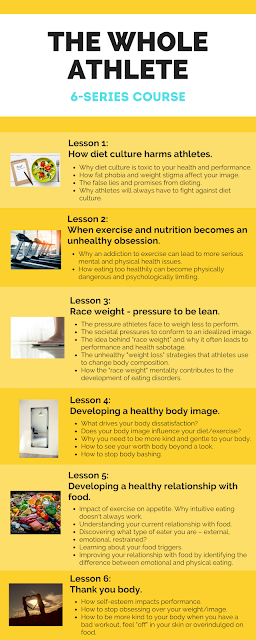What behavior has lead you into a vicious cycle of self-sabotage?
What habits have you struggled with the most?
What behavior, if changed, would give you the most leverage toward improving the odds of achieving your athletic goals?
This is why I created The Whole Athlete.
As you enter the New Year, the motivation may be high to change behaviors in order to move closer to your athletic goals. While you may have good intentions behind your behavior changes, it's not uncommon for good intentions to lead to bad outcomes.
I want to remind you that your thoughts are controlled by your beliefs, which are usually ingrained in your subconscious mind. Interestingly, many beliefs are inherited from the beliefs of others - before you are able to form your own beliefs. This is why behavior change can be so hard.
Many thoughts and beliefs are so deep-rooted that it can be extremely difficult to reprogram your mind. For example, being repeatedly told that carbohydrates are bad for you or that carbs make you gain weight can make it incredibly hard for you to meet your daily carbohydrate needs as an athlete. You may feel extreme guilt, shame or anxiety when consuming bread, rice or raisins - all because of the deep-rooted belief that carbs are bad. Perhaps it's something as small as not eating before a workout or not running with a hydration belt because you feel you don't need to - that you are just fine without. Sometimes you have to change your opinion to experience better results.
These are only two examples (of many) to show how powerful thoughts can be as it relates to behavior changes.
Hopefully you can now see how just one small shift in a belief can have an enormous impact on your life.
Due to the cultural norms of "clean eating" and over-exercising, this sends a message to athletes that it's ok to eat and exercise in a certain way in order to look, feel and perform at your best. Unhealthy behaviors like restrictive eating, excessive exercise and intentional underfueling have become so normalized that behaviors that would qualify as disordered are often considered perfectly appropriate - reinforced by a culture that is obsessively fixated on food, eating and weight. A few of this normalized behaviors include:
- Denial of hunger and use of tricks to avoid eating (such as drinking large amounts of water, detox drinks or coffee).
- Refusal to eat certain foods (ex. bread), progressing to restrictions against whole categories of foods (ex. carbohydrates).
- Anxiety about gaining weight or being "fat."
- Development of food rituals (ex. I can only eat this if I have exercised x-amount of duration or intensity).
- Rigid exercise routines to burn off calories or to compensate for eating.
- Withdrawal from friends and activities in favor of new social groups that share similar food and exercise rituals and rules.
- Regular use of compensatory behaviors such as fasting to burn off calories.
- Extreme concern with body weight and shape.
You can't change your behaviors without changing your thoughts. Once you accept that your inaccurate beliefs are driving your actions, you can start the work of unlearning and changing self-sabotaging behaviors with more productive behaviors to enhance your performance, optimize your health and protect your well-being.
Are you ready to change your thoughts to change your behaviors?
Check out the FREE introduction of the The Whole Athlete course.
If you found the content helpful and you want to learn more, you can pre-enroll now or register for the 6-lesson course when it opens on January 3rd, 20201.

